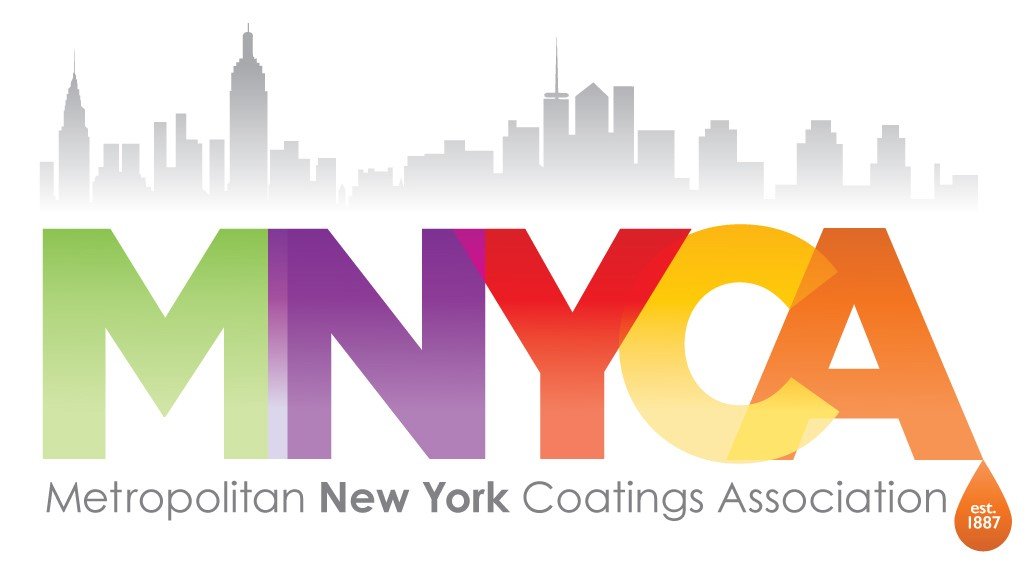Our Mission
The mission of the Metropolitan New York Coatings Association is to promote the growth of the coatings industry, corresponding industries, and its members by serving as a leader and a conduit for information, education and networking. The Association seeks to enhance the knowledge of all individuals working within the industry coatings market. The Association is committed to providing its members with management information, educational resources, and opportunities for the exchange of ideas. The Association explicitly recognizes that it is not intended, nor shall it be used, directly or indirectly, to restrict free and lawful competition.
code of ethics
We, the members of the Metropolitan New York Coatings Association, Inc., fully recognizing our professional responsibilities, do hereby pledge ourselves to compete always with fairness and honesty, and to refrain from false, derogatory references to competitors or their products.
We pledge to represent our products truthfully in advertising and labeling, avoiding all false and misleading statements about our own products or those of our competitors.
We pledge not to circulate false rumors regarding our competitors’ products or their personal or financial reputations, and to strive in all lawful ways to increase the efficiency and service to the public by the industry as a whole.
Each member pledges not to use information volunteered by another member during a meeting to that member’s detriment so as to encourage the free flow of information and idea exchange among the members.
ANTITRUST policy
The Metropolitan New York Coatings Association subscribes to the Anti-Trust Policy as stated by the American Coatings Association reprinted here as follows:
Section 1 of the Sherman Antitrust Act and Section 5 of the Federal Trade Commission Act prohibit “contracts, combinations or conspiracies in restraint of trade and unfair methods of competition in commerce….”
One of the clearest antitrust violations a corporation can commit is an agreement by its members to set prices at a fixed level. Such an agreement is a per se violation of the antitrust laws, even if the prices set are reasonable or the ends sought are worthy. Similarly, terms and conditions of sale which affect the buyer should not be discussed. These include discounts, freight allowances, terms of product warranties and other individual policies followed in dealing with customers. Informal understandings and planned courses of action on these subjects by competitors also clearly are forbidden.
Administrative or disciplinary action against member companies, or the expulsion of member companies, may result in economic injury to the affected members and, thus, may constitute an illegal boycott or restraint of trade. Therefore, these sensitive areas must be discussed in accordance with strictly defined legal guidelines and only in the presence of counsel.
Frequently, a corporation engages in the voluntary development of a product specification or industry standard of quality. Antitrust problems can arise if the standard developed advances the economic interests or operates as a marketing advantage for some members to the detriment of others.
Statistical reporting is another common corporation-sponsored activity. However, since some other corporations and their members have used these activities in the past to further price-fixing and monopolistic schemes, statistical reporting projects must be conducted with great care in order to conform with clearly-defined rules regarding the collection, protection, and dispersal of confidential product information.
Antitrust problems also may arise when corporations become involved in industry-wide research and development programs. When pooling of results exists, corporation sponsored joint research and development activities may injure competition by diluting the competitive pressure to innovate.
A potential antitrust infraction can also involve normally protected corporation-sponsored efforts to petition government agencies for action. A delicate balance always must be maintained between the First Amendment right to petition government and the antitrust laws’ prohibition against restraint of trade. The First Amendment does not protect parties which seek to prod government agencies into imposing trade restrictions by misleading them or by engaging in other dishonest activities. Any effort designed to injure industry competitors clearly is prohibited.
The proper conduct of corporation meetings requires an understanding and conscious awareness by all of antitrust implications. Your non-participation in the discussion (pro or con) may not protect you if, out of such discussions at a meeting you attend, any agreement in restraint of trade originates. However, no imputed unlawful purpose can arise if conscious independent and individual judgment is exercised and no illegal common course of action is pursued.
From time to time, ACA member companies might solicit the support of the Corporation in circumstances involving government administrative actions directed against that company. In such situations, the appropriate role of the Corporation is to act in a manner consistent with the interests of the membership as a whole. Accordingly, any assistance provided individual corporation members shall be done solely with a view toward protecting or advancing the interests of the industry and shall seek, where appropriate, to promote favorable government policies or foster precedent advantageous to the entire industry.
BE ALERT AND KEEP INFORMED. Antitrust laws are wide-ranging, complex, and subject to changing interpretations.
Consult your company’s lawyer or a Corporation counsel immediately if you have any questions about the legality of any proposed Corporation action.

